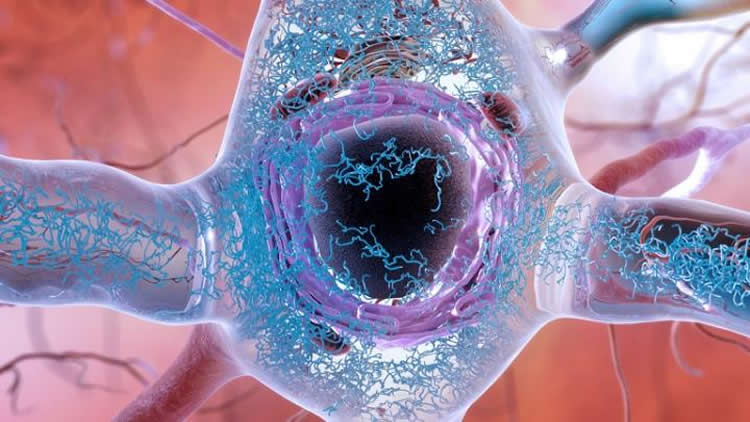mr peabody
Bluelight Crew
Blocking endocannabinoids may trigger early Alzheimers
Another study from a team of investigators at the Stanford University School of Medicine led by Daniel Madison has implicated the blocking of endocannabinoids, the brains own internal versions of the active compounds in cannabis, in the early pathology of Alzheimers.
It seems a substance called A-beta, suspected to play a key role in Alzheimers because it is the main part of clumps which dot the brains of Alzheimers patients, may, in the early stages of
the disease, impair learning and memory by blocking the beneficial action of endocannabinoids.
The group at Stanford is now trying to suss out the molecular details of how this occurs. Pinning down the details could pave the path to new ways to stave off the learning disabilities and memory deficits that characterize Alzheimers and could also help explain how smoking marijuana helps to delay or even prevent its onset.
In the study, published in the June 28, 2014 issue of the scientific journal Neuron, the researchers detail how pyramidal cells in the brain underpin learning and memory. This assures, they learned, that high-intensity input such as falling down or burning your finger tends to stick in your memory, thus presumably help avoid such mishaps in the future.
Pyramidal cells are encouraged to ignore noise signals, they constantly receive random signals from upstream nerve cells by a sort of wet blanket nerve cells called interneurons.
These secret an inhibitory substance, the molecular equivalent of an indifferent shrug or yawn, signaling that the input is not really very important.
But when the news actually is significant, pyramidal cells secrete their own Now just you wait a minute, these are important chemicals. And guess what? Those chemicals which signal the importance of incoming information are none other than the endocannabinoids.
Madison speculates that when we smoke marijuana, the phytocannabinoids from the plant have the effect of enhancing the perceived importance of events that happen while we are under
the influence of pot.
And another likely effect is inhibiting the wet blanket effect of interneurons which, in Alzheimers, needs reducing to increase the ability to learn and remember.
Increasing tolerance
The federal Schedule I illegality of marijuana, under which it is officially considered to have no medical uses and a high danger of abuse, has stymied Wenk's research. But the scientist has noticed a refreshing trend, a major shift in the cultural tolerance of cannabis, particularly from young people, including his students.
Ive really seen a shift in 10 years of increased marijuana tolerance, Wenk said. In my class, people are more than willing to discuss their marijuana use. But they would be embarrassed
to mention that they smoke cigarettes.
With Alzheimers ranking as the sixth leading cause of death in the United States, and with more than five million Americans currently struggling with the disease, which has no known cure,
you would think that lab results as promising as Wenk's would have attracted major funding by now. But that is not the case, because, as we have pointed out, the NIDA is not really interested in knowing about the medical benefits of marijuana, just its dangers.
Wenk, who has researched the effects of Alzheimers on animals for about 40 years, has shared his findings in his book, Your Brain On Food.
https://tokesignals.com/marijuana-sh...ch-is-stalled/
Another study from a team of investigators at the Stanford University School of Medicine led by Daniel Madison has implicated the blocking of endocannabinoids, the brains own internal versions of the active compounds in cannabis, in the early pathology of Alzheimers.
It seems a substance called A-beta, suspected to play a key role in Alzheimers because it is the main part of clumps which dot the brains of Alzheimers patients, may, in the early stages of
the disease, impair learning and memory by blocking the beneficial action of endocannabinoids.
The group at Stanford is now trying to suss out the molecular details of how this occurs. Pinning down the details could pave the path to new ways to stave off the learning disabilities and memory deficits that characterize Alzheimers and could also help explain how smoking marijuana helps to delay or even prevent its onset.
In the study, published in the June 28, 2014 issue of the scientific journal Neuron, the researchers detail how pyramidal cells in the brain underpin learning and memory. This assures, they learned, that high-intensity input such as falling down or burning your finger tends to stick in your memory, thus presumably help avoid such mishaps in the future.
Pyramidal cells are encouraged to ignore noise signals, they constantly receive random signals from upstream nerve cells by a sort of wet blanket nerve cells called interneurons.
These secret an inhibitory substance, the molecular equivalent of an indifferent shrug or yawn, signaling that the input is not really very important.
But when the news actually is significant, pyramidal cells secrete their own Now just you wait a minute, these are important chemicals. And guess what? Those chemicals which signal the importance of incoming information are none other than the endocannabinoids.
Madison speculates that when we smoke marijuana, the phytocannabinoids from the plant have the effect of enhancing the perceived importance of events that happen while we are under
the influence of pot.
And another likely effect is inhibiting the wet blanket effect of interneurons which, in Alzheimers, needs reducing to increase the ability to learn and remember.
Increasing tolerance
The federal Schedule I illegality of marijuana, under which it is officially considered to have no medical uses and a high danger of abuse, has stymied Wenk's research. But the scientist has noticed a refreshing trend, a major shift in the cultural tolerance of cannabis, particularly from young people, including his students.
Ive really seen a shift in 10 years of increased marijuana tolerance, Wenk said. In my class, people are more than willing to discuss their marijuana use. But they would be embarrassed
to mention that they smoke cigarettes.
With Alzheimers ranking as the sixth leading cause of death in the United States, and with more than five million Americans currently struggling with the disease, which has no known cure,
you would think that lab results as promising as Wenk's would have attracted major funding by now. But that is not the case, because, as we have pointed out, the NIDA is not really interested in knowing about the medical benefits of marijuana, just its dangers.
Wenk, who has researched the effects of Alzheimers on animals for about 40 years, has shared his findings in his book, Your Brain On Food.
https://tokesignals.com/marijuana-sh...ch-is-stalled/
Last edited:









